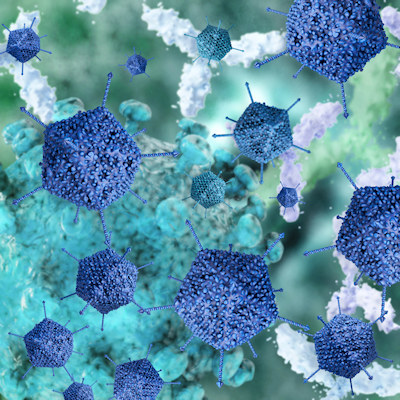April 6, 2022 -- Dysfunction or damage to the musculoskeletal system can significantly impair a person's quality of life due to increased struggles with performing daily tasks. This can range from limitations in walking or running in the case of torn ligaments, or even difficulty standing up in patients with some forms of muscular dystrophy. These problems often need to be addressed with biomedical solutions in addition to surgery to work toward resolving a patient’s symptoms.
Companies such as Geistlich Biomaterials Italia, Santhera Pharmaceuticals, and Sarpeta Therapeutics are utilizing advanced technologies to create unique approaches for these musculoskeletal dysfunctions, according to Cell and Gene Therapy Business Outlook, a sister publication of ScienceBoard.
Geistlich Biomaterials Italia-Tissue Regenix
Geistlich Biomaterials Italia is the Italian branch of Geistlich Pharma, a company specializing in the production and distribution of a variety of therapies in the field of regenerative medicine. In particular, Geistlich has expertise in the development of products that regenerate cartilage and bone to resolve dysfunction in these parts of the body. In alignment with Geistlich's mission of treating musculoskeletal disorders, Geistlich Biomaterials Italia has partnered with Tissue Regenix to increase access to regenerative therapies through a distribution agreement. The companies will work together to expand distribution of OrthoPure XT in Italy. OrthoPure XT is a decellularized xenograft ligament that can be used to fill the gaps in treatment for injuries of the knee, especially anterior cruciate ligament (ACL) tears. This technology restores mobility in a common but debilitating injury with limited treatment options. Financial details of this collaboration were not disclosed.
Santhera Pharmaceuticals-Seal Therapeutics
Santhera Pharmaceuticals is a specialty pharmaceutical company that focuses on the development of treatments for rare neuromuscular and pulmonary diseases. Duchenne muscular dystrophy is an example of an inherited musculoskeletal disease with very limited treatment options that Santhera is currently investigating to develop more effective treatments. To continue its pursuit in the treatment of different forms of muscular dystrophy, Santhera Pharmaceuticals has entered into a collaboration with Seal (simultaneous expression of artificial linkers) Therapeutics to develop a stronger treatment option for laminin-α2-deficient congenital muscular dystrophy (LAMA2 MD) in newborns and infants. Seal Therapeutics will work to develop a gene therapy for LAMA2 MD through Santhera's support. This collaboration will also free Santhera to continue advancing its existing pipeline projects for treating muscular dystrophy, vamorolone and lonodelestata. Santhera will be eligible for payments based on Seal's future proceeds.
Sarepta Therapeutics-GenEdit
Sarepta Therapeutics is a biotechnology company that is working toward developing gene therapies for rare diseases. Among the rare diseases that Sarepta targets, the company has a strong focus on muscular dystrophies due their significant impairment of musculoskeletal function and quality of life in general. To expand on the use of gene therapy to target these diseases, Sarepta has partnered with GenEdit to combine its gene editing technology with GenEdit's NanoGalaxy genetic delivery platform. The two technologies will be used together to target four neuromuscular indications selected by Sarepta using gene therapies with improved delivery to the sites of action in specified tissues. Through the partnership, Sarepta will provide GenEdit with $57 million in near-term payments for exclusive option rights to license polymer nanoparticles developed by GenEdit.
Musculoskeletal dysfunction comes in many forms, from inherited to acquired. Regardless, these dysfunctions impose heavy limitations on a patient's life. Furthermore, many of these diseases are progressive and may have restricted or invasive treatment options. Geistlich Biomaterials Italia, Santhera Pharmaceuticals, and Sarepta Therapeutics have entered into a series of collaborations to develop innovative strategies for treating these diseases, ranging from gene therapy to regenerative medicine. Through the continued efforts of these companies in improving treatment options for musculoskeletal diseases and dysfunctions, many patients will be able to experience an improved quality of life and a renewed sense of autonomy that was previously not considered as a feasible option.
To stay up to date on the latest business happenings in the cell and gene therapy industry, check out Cell & Gene Therapy Business Outlook today!
Copyright © 2022 scienceboard.net








